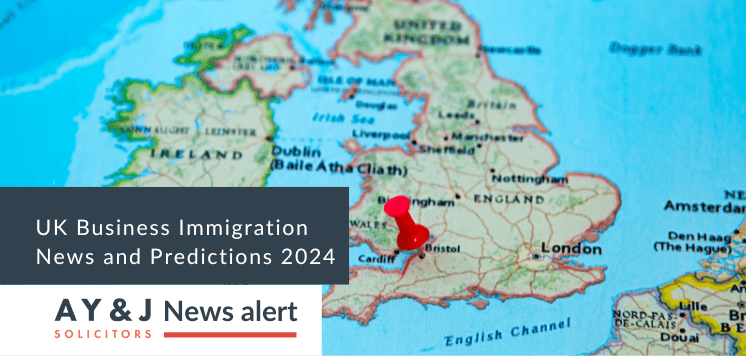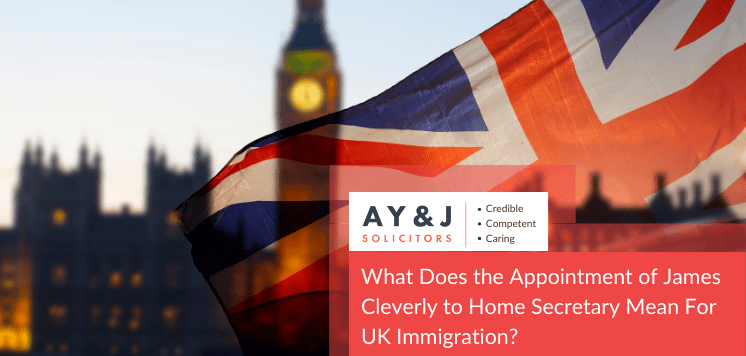Shakespeare wrote the classic line: “The course of true love never did run smooth.” And if you are planning to bring a spouse or partner to join you in the UK using the spouse/partner visa route, that quote will particularly resonate.
In December last year the Home Secretary, James Cleverly, announced a raft of changes to the UK immigration system which were designed to restrict migrant numbers. One of these was an increase in the salary threshold that people must earn to qualify to sponsor a spouse or partner to come to the UK.
What are the changes?
Currently, the minimum someone must earn in order to sponsor a partner is £18,600, which means anyone earning this, or above, can apply to bring a foreign partner to live with them in the UK. If all other criteria are met, there should be no problems. This salary threshold is set to rise to £38,700, however, meaning only those who earn significantly above the national average wage of £29,669 per annum can live happily ever after with their foreign partners in the UK.
What is a spouse visa?
The spouse visa (also referred to as the partner and spouse visa) enables an eligible foreign national to join their partner and live with them in the UK if that partner is a British citizen or settled person (e.g. a person with Indefinite Leave to Remain or EU Settled Status). Partners do not automatically get the right to live in the UK through marriage to a British citizen. Eligible applicants include those who are married, in a civil partnership, or unmarried.
Couples must intend to live together in the UK and must be in a genuine and eligible relationship and have sustainable accommodation in the UK.
When will the changes happen?
There was considerable outrage at the significant hike in the minimum salary threshold and the effect it would have on families and couples in international relationships, many of whom planned to start lives together in Britain but would no longer qualify under the rules. There was also a fear that thousands of couples would rush to apply before the new rate came into effect.
In the face of these concerns, a few weeks after making the announcement the government did a partial U-turn and reduced the threshold initially to £29,000. It will, however, still rise incrementally to £38,700. The first minimum income increase to £29,000 will come into effect in spring 2024; and is then expected to rise to around £34,500 at an unspecified time but likely later in 2024, and finally to around £38,700 in early 2025.
What does this mean for applicants?
Firstly, the rise only applies to first-time applicants who apply when the rule comes into force, so anyone considering applying and who does not earn the higher rate should not delay their application. A government spokesperson initially said the higher threshold would apply to visa extensions, but the Home Office announced on 21 December that it would not, which is good news for people who already hold a spouse visa but do not earn the required amount.
People applying for permanent residence (formally known as ‘settlement’ or ‘indefinite leave to remain’) after being on a spouse/partner visa are also required to meet the minimum income rule and currently this exemption also appears to cover them. However, the full details have not yet been published and it is expected fuller explanations will be released soon.
Importantly, only the sponsor’s income can be counted towards the minimum income threshold when an initial application is made from overseas. This places the full onus of the salary requirement on the partner in the relationship who lives in the UK and /or otherwise falls under the definition of a settled person. For extensions and permanent residence, both incomes will count.
To prove salary, applicants will generally need to provide evidence of having earned their income for the past six months.
Why are the changes being made?
Earlier in 2023 figures were released which showed that net migration in the UK was at record levels and estimated to be at 745,000 in the 12 months ending on 31 December 2022, despite the Conservative Party pledging to bring levels down. The measures introduced by Mr Cleverly were designed to reduce net migration by an estimated 300,000.
Dependents of other visa holders were specifically targeted. For example, most international students are no longer able to bring dependents with them and people coming to the UK on care worker visas are also now not allowed to bring partners or children with them.
In relation to the salary threshold rise, this has been introduced to ensure that spouses and partners coming to the UK are financially supported and do not become a drain on the welfare system. In its guidance, the government points out that ‘many countries require proof of sufficient economic resources’ and that the £38,700 level is comparable with levels set in Belgium and Norway.








